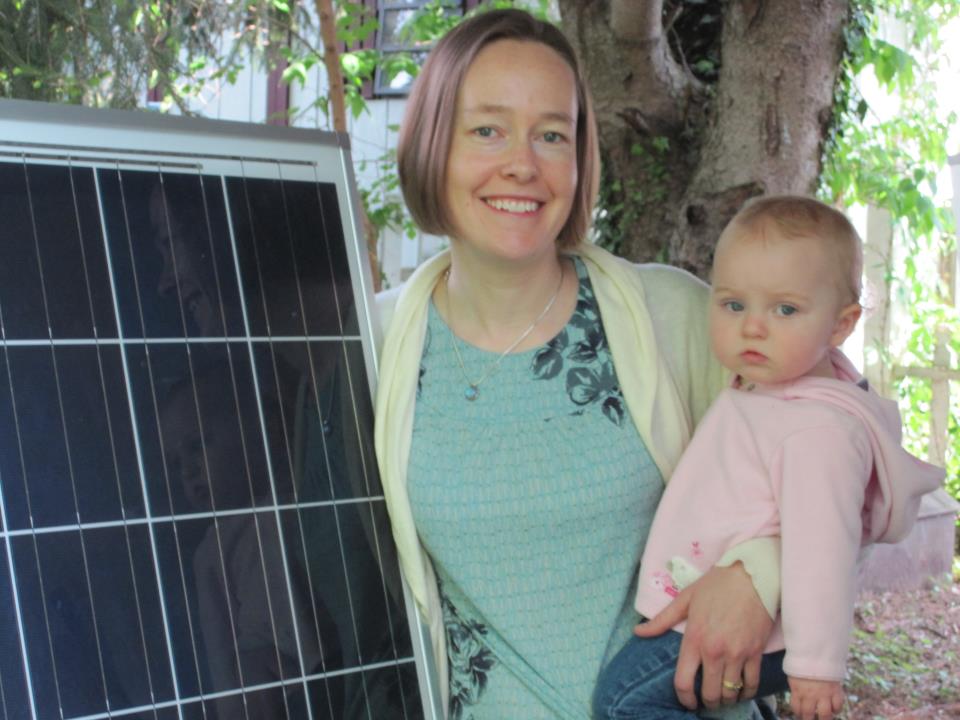Thousands of parents across the U.S. today are taking part in the annual "Take Your Child to Work Day." It's a great chance to show our sons and daughters just what we're up to every day while they're at school (or while they're home, if you work evenings), and maybe even to inspire them to start thinking about careers of their own.
 I normally work from a small office, so keeping my four-year-old daughter Hazel with me all day as I work on my laptop might bore her to tears -- but she's come with me to other events many times in her short life. She's helped me testify at public hearings, stood with me at rallies, and even joined a conference or two.
I normally work from a small office, so keeping my four-year-old daughter Hazel with me all day as I work on my laptop might bore her to tears -- but she's come with me to other events many times in her short life. She's helped me testify at public hearings, stood with me at rallies, and even joined a conference or two.
I do so much of my work with the Beyond Coal campaign for my daughter's future -- and for the future of all kids. I imagine many of my colleagues who are parents feel the same. We work together to phase out coal plants so families can enjoy cleaner air and water. We demand clean energy investments to help fight climate change so our kids and grandkids will have a safer, healthy planet when they grow up.
Our kids deserve every opportunity for a safe and prosperous future. Keeping our children happy and healthy is the top concern for every parent, and for our communities as a whole.
But, when your kids have asthma, it becomes harder and harder to do just that. All your concerns are multiplied by the time, effort, and anxiety you face when trying to balance their care with the demands of making ends meet.
Take Your Child to Work Day shouldn't end in the emergency room. But, for the parents of the seven million American kids that suffer from asthma, sudden trips to the hospital are an all too common occurrence.
One of the major triggers of asthma attacks is smog pollution - the dirty air created after fossil fuel emissions mix with heat and sunlight. The doctors and scientists at the American Lung Association say young children breathing in smog pollution is like getting sunburn on their lungs. It wreaks havoc on their respiratory systems and can cause permanent lung damage, and in some cases, premature death.
Children are at the greatest health risk from smog pollution because they are more likely to be active outdoors and their lungs are still developing. Asthma strikes nearly one out of every 10 school children in the United States and is the number one health issue that causes kids to miss school. On "bad-air days" or "air alert days," particularly during the warmer months, kids with asthma are forced to stay indoors to avoid aggravating their condition.
Smog pollution is even worse in communities of color, since African and Latino American kids are more likely to live in counties with serious smog problems. In fact, African American kids have nearly two times the rates of current asthma as white children, and are four times as likely to die from it.
We can help change this reality for kids and parents by speaking up for stronger smog standards. Our voices are needed to counter the misinformation from big polluters who consistently choose their bottom line over public health. EPA is due to update our smog protections in October, and we need to push for a standard strong enough to protect the health of all children.
This Take Your Child to Work Day, tell the Environmental Protection Agency to side with working parents and their children, not polluters, by strengthening the smog pollution standard and giving us all a better quality of life. You can do just that by going to sc.org/smog.
